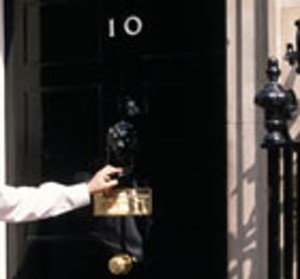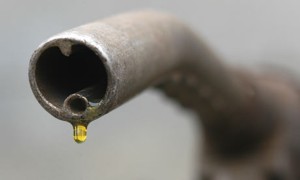Article: Who is really behind the campaign to cut fuel duty?
18th August 2015
Who is really behind the campaign to cut fuel duty?
The Conservative MP for Harlow, Robert Halfon, has secured a Commons debate this afternoon on the government’s plans to raise fuel duty by 3p in the new year after 112,397 signed his government e-petition calling for cheaper petrol and diesel. It says:
High petrol and diesel prices are crippling our economy. Many motorists now pay a tenth of their income just to fill up the family car, and millions of families are suffering. Businesses are under immense pressure, especially the road freight industry. But petrol and diesel are now so astronomically expensive, it is COSTING the government money. This is because fewer people can afford to drive, leading to lower tax revenues. Therefore, this petition calls on the government to: 1) Scrap the planned 4p fuel duty increases, which are scheduled for January and August 2012. 2) Create a price stabilisation mechanism that smooths out fluctuations in the pump price. 3) Pressure big oil companies to pass on cheaper oil to motorists. 4) Set up a commission to look at market competitiveness, and radical ways of cutting fuel taxes in the longer term.
The campaign has been popularly portrayed as the ordinary motorist opposing the government’s cuts. The Times reports today (£) that the prime minister is considering stalling the 3p rise in January to help motorists. Such a U-turn would leave the Treasury with a £1.5bn hole in its finances. Cameron’s spokesman told the Times:
 No 10 Downing Street. Photograph: Alamy
No 10 Downing Street. Photograph: Alamy
We recognise, as a government, that motoring is an essential part of everyday life for families, that a lot of families rely on their car and that fuel is a significant cost for those families. We took some action at the time of the budget to get rid of the escalator and replace it with the fair fuel stabiliser and to cut fuel duty by a penny.
However, a closer look at the campaign behind the e-petition reveals that it is largely supported by the petrol-dependent industry – road haulage workers, insurance companies, the car press, and breakdown services such as the RAC, raising questions about whether it is truly representative of ordinary drivers themselves.
The e-petition was tabled jointly by Halfon and FairfuelUK. Its current call on its website for people to lobby their MP to attend this today’s debate on fuel prices is signed by the “FairFuelUK Campaign Team – The RAC, FTA [the Freight Transport Association] and RHA [Road Haulage Association]”, suggesting they are the principal supporters.
The campaign is run by a professional group of lobbyists, the Why Not campaign, who advertise on their website their PR and communications specialists. Peter Carroll, Lynne Beaumont and Howard Cox are listed as the contacts for the FairFuelUK campaign. All three work for the Why Not campaign lobby firm.
The FairFuelUK campaign appears to be very transparent about their funding sources. A page on their website lists the following supporters:
- The RAC
• Road Haulage Association
•Freight Transport Association
• The Fuelcard Company
• OptIn Haulage insurance specialists
• British Association of Removers
• Movecorp
• Chemical Business Association
• Independent Automotive Aftermarket Federation
• Fuel Card Services
• Truckersworld
• BVRLA
• ifw
• Drive.co.uk
• girlracer magazine
• Truckprotect
• ConstructaQuote
• Removals.co.uk
• UKHaulier
• TopMotors news
• Bossreg.com
• Professional Drivers Association
I’ve spoken to Peter Carroll, the director of the Why Not campaign and FairFuelUK campaign. He confirmed that the Why Not campaign is his private, for-profit lobbying firm and FairFuelUK is a subsidiary of that. He said:
I’m a road haulier. I recently sold my business with 50 lorries. I still have shares in another company. I am from the industry and I see the pain and suffering people have so I started the campaign. Yes, the RAC pay me to run it; they don’t pay me enough to run it, I do it on a shoestring. If it wasn’t an issue that people care about I wouldn’t get more than 100,000 people signing the petition. We are only getting this far because public feeling is so strong.
He confirmed that the RAC, FTA and RHA fund the campaign and that they also received a donation from a fuel card company. Other groups listed have supported the campaign in other ways. Other clients of his company include a campaign to save the wild tiger and a blind charity in north London.
I also spoke with Richard Dyer of Friends of the Earth, who told me he believed the fact that the campaign is industry funded undermines its independence:
It goes to show that there are vested interests here that are really encouraging us to continue our dependency and addiction to oil, which is a major problem for all of us. What we need from central government and what we all need to do is wake-up to the fact that we have to wean ourselves off car use. That means improved public transport and making it easier to walk and cycle short journeys – the majority of journeys. 80% of commuter journeys have one person in. That needs to change.
My interest in the background to the fuel duty campaign was triggered by a tweet this morning from Nick Faith, the head of communications at the Policy Exchange thinktank, who wrote (in a personal capacity):
E-petition – improves direct democracy or a great tool for lobbyists? There’s a debate to be had there me thinks
What do you think? Is there something wrong with industries funding the campaigns behind such petitions that could force a U-turn in their favour? One poll for The Sun newspaper suggests that 85% of people oppose the planned hike in fuel duty. Does it really matter who funds the campaign if it reflects popular opinion?
Get in touch below the line, email me at polly.curtis@guardian.co.uk or tweet@pollycurtis
2.17pm update:Thanks for your comments below the line. @MatthewSinclair, of the Tax Payers Alliance, which has campaigned on the fuel duty issue, has posted a report herepointing out that Friends of the Earth receive funding from the European Commission and British government. @Chuffy asks @MatthewSinclair, to reveal the Tax Payer’s Alliances funding sources.
Several people here, here and here feel that the organisations involved are simply representing their members interests, and that the knock-on costs of high petrol affects everyone in higher costs at the checkouts. @CharlieR argues that “corporations should be excluded from political influence”.
Guardian
I am starting to wondering whether there’s a wider piece of work to look at lobbyists’ involvement in the e-petitions more widely. My colleague @JulietteJowit writes:
This recently came up for me in another context: an e-petition doing the rounds on Twitter from environment groups/indivudals, including MP Zac Goldsmith, now signed by nearly 120k people. The petition, started by Sir Andrew Green, was asking government to “take all necessary steps” to curb over-population in the UK, and many environmentally concerned people might have felt some intuitive sympathy. It didn’t say that Sir Andrew is chairman of MigrationWatchUK, a lobby group which proposes drastic measures to slash migration – something people might have wanted to know before signing it.
And thank you to the Guardian’s @MikeWhitereplies who remembered thisinteresting research suggesting that prices at the pumps haven’t actually changed in real terms in 30 years.
I came across this very useful graphic compiled by Craig Bloodworth who blogshere showing how the cost of fuel has changed and breaking down the impact of fuel duty, VAT and the changing costs of oil. It shows that the forecourt prices are tightly linked to oil and duties. I think I detect a slight time lag in the time it takes for prices to come down when the taxes or oil costs drop.


0 Comments